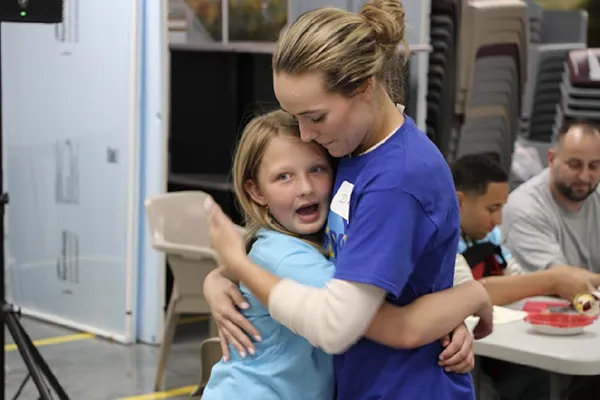Experiencing the incarceration of a parent can be an overwhelming and painful ordeal. When my father was incarcerated when I was 18, it left a profound void in my life and that of my family. The absence of a parent due to incarceration not only shatters family dynamics but also challenges our sense of stability and identity. However, even in the midst of such adversity, it is possible to stay true to your morals and character.
Here are some key pieces of advice to help navigate this difficult journey.
Embrace Resilience
The sudden absence of a parent can leave you feeling lost and overwhelmed. Resilience is your inner strength that allows you to bounce back from hardships. Here are some ways to build and embrace resilience:
- Seek Support: Look for resources and support systems that can help you cope. This can include school counselors, community organizations, or online resources dedicated to supporting children of incarcerated parents.
- Stay Connected: Maintain communication with your incarcerated parent, if possible. Writing letters, visiting, or even talking on the phone can help preserve the bond and provide emotional support for both you and your parent.
- Express Your Feelings: It’s important to acknowledge and express your emotions. Keeping a journal, talking to a trusted friend, or seeking therapy can help you process your feelings in a healthy way.
Find Purpose in Your Pain
Turning pain into purpose can be a powerful way to cope with the challenges of having an incarcerated parent. Here’s how you can find purpose:
- Help Others: Volunteering or participating in community service can provide a sense of fulfillment and help you connect with others who understand your situation. It can also give you a sense of control and empowerment.
- Raise Awareness: Sharing your story can raise awareness about the challenges faced by children of incarcerated parents. This can be done through school projects, social media, or community events.
- Create Initiatives: If you feel passionate about making a larger impact, consider starting an initiative or joining an existing one that supports children in similar situations. This can be a way to turn your experience into positive change for others.
Build a Supportive Community
Having a strong support system is crucial when dealing with the incarceration of a parent. Here are some tips for building a supportive community:
- Lean on Family and Friends: Don’t be afraid to reach out to your family and friends for support. They can provide a listening ear, practical help, and emotional comfort.
- Join Support Groups: Look for support groups specifically for children of incarcerated parents. These groups can provide a safe space to share your experiences and gain insights from others who understand what you’re going
through. - Connect with Mentors: Having a mentor can provide guidance, support, and a positive role model. Look for mentors through school programs, community organizations, or family connections.
Stay True to Your Morals and Character
It’s easy to feel lost or disconnected from your values during difficult times. Here’s how you can stay grounded in your morals and character:
- Define Your Values: Take some time to reflect on what values are most important to you. Write them down and think about how you can incorporate them into your daily life.
- Set Goals: Setting personal goals can help you stay focused and motivated. These goals can be related to your education, hobbies, or personal growth.
- Practice Self-Care: Taking care of yourself is essential for maintaining your mental and emotional health. This includes getting enough sleep, eating well, exercising, and engaging in activities that bring you joy and relaxation.
Advocacy and Mentorship
Engaging in advocacy and mentorship can be incredibly rewarding and help reinforce your own sense of purpose and values. Here’s how:
Advocate for Change: Use your voice to advocate for policies and programs that support children of incarcerated parents. This can include writing letters to lawmakers, participating in awareness campaigns, or speaking at community events.
Be a Mentor: If you’re in a position to do so, consider becoming a mentor to younger children who are dealing with similar situations. Your experience and guidance can make a significant difference in their lives.
Looking Forward
Dealing with the absence of a parent due to incarceration is undeniably challenging, but by embracing resilience, finding purpose in your pain, building a supportive community, and staying true to your morals and character, you can navigate this difficult journey. Remember, it’s okay to seek help and lean on others for support. Your experiences and the strength you gain from them can become a source of inspiration and hope for others facing similar challenges.
Turning adversity into a source of strength and purpose is a testament to the resilience of the human spirit. By staying true to yourself and reaching out to others, you can create a positive impact and help break the cycle of stigma and discrimination that often surrounds children of incarcerated parents. Together, we can build a world where every child feels seen, heard, and valued, regardless of their family’s circumstances.






